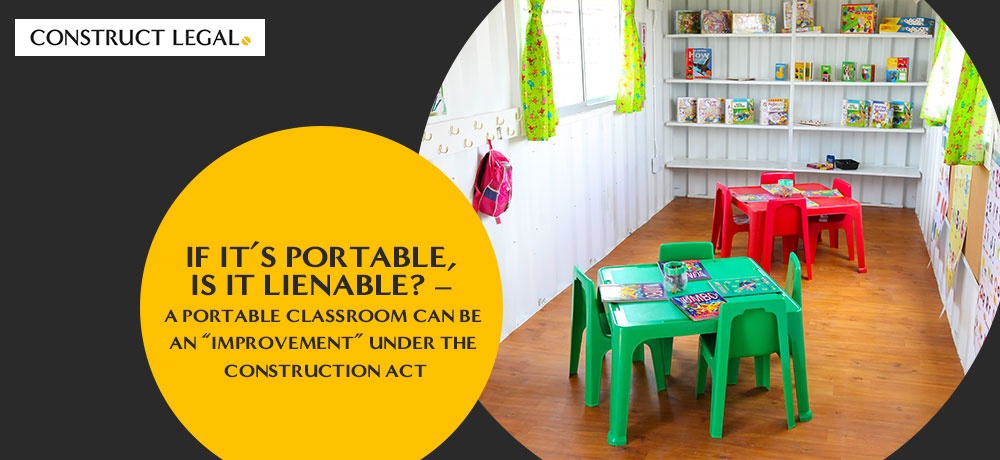If it’s Portable, is it Lienable? – A Portable Classroom Can Be an “Improvement” under the Construction Act

In the recent decision of On Point Ltd. v Conseil des Écoles Catholiques du Centre Est et al., the Ontario Superior Court of Justice held that portable school classrooms (or “portables”) can constitute improvements within the meaning of the Construction Act.
Background
The plaintiff, On Point Ltd., was retained as a subcontractor to build portables for a school in Stittsville, Ontario. The plaintiff was not fully paid, and it registered a lien against the school property. The owner brought a motion for summary judgment to determine whether the portables were “improvements” within the meaning of the Construction Act to engage lien rights.
Analysis
Certain requirements must be satisfied to engage lien rights, including that the work constitute an “improvement” to the premises. The definition of “improvement” in the Construction Act includes any construction, erection, or installation on the land “that is essential to the normal or intended use of the land”.
In this case, the court considered the language of the Construction Act, the nature of the work performed, and the conduct of the parties during the project to determine that the plaintiff’s work was an “improvement” and did engage the lien rights in the Construction Act.
The court found that the portables had a purpose that is essential to the school’s operations, including to accommodate an increase in student population. The court also noted that student enrolment fluctuations are a normal part of the school’s operations.
Although a portable is not permanent, the portables for this project were complete structures. Stilts were placed in the ground to support them, construction of the portables was completed on-site, and the existence of the portables on the property enhanced the value of the school.
The court also looked at the conduct of the parties. The destination of the portables was known to the parties, meaning there was a connection between the work and the school property. The owner also retained the 10% statutory holdback from payments, suggesting that the owner operated on the basis that the portables were a lienable supply (since the 10% holdback is retained by the owner for the benefit of lien claimants).
Key takeaways
Just because a structure may be portable does not mean that it is not lienable. Parties to construction contracts that include portable, modular, or other impermanent or semi-permanent structures should be aware that the work could create lien rights.
If you have any questions about construction disputes, including adjudication and liens, please contact a member of Construct Legal.
The information contained in this article is not legal advice.